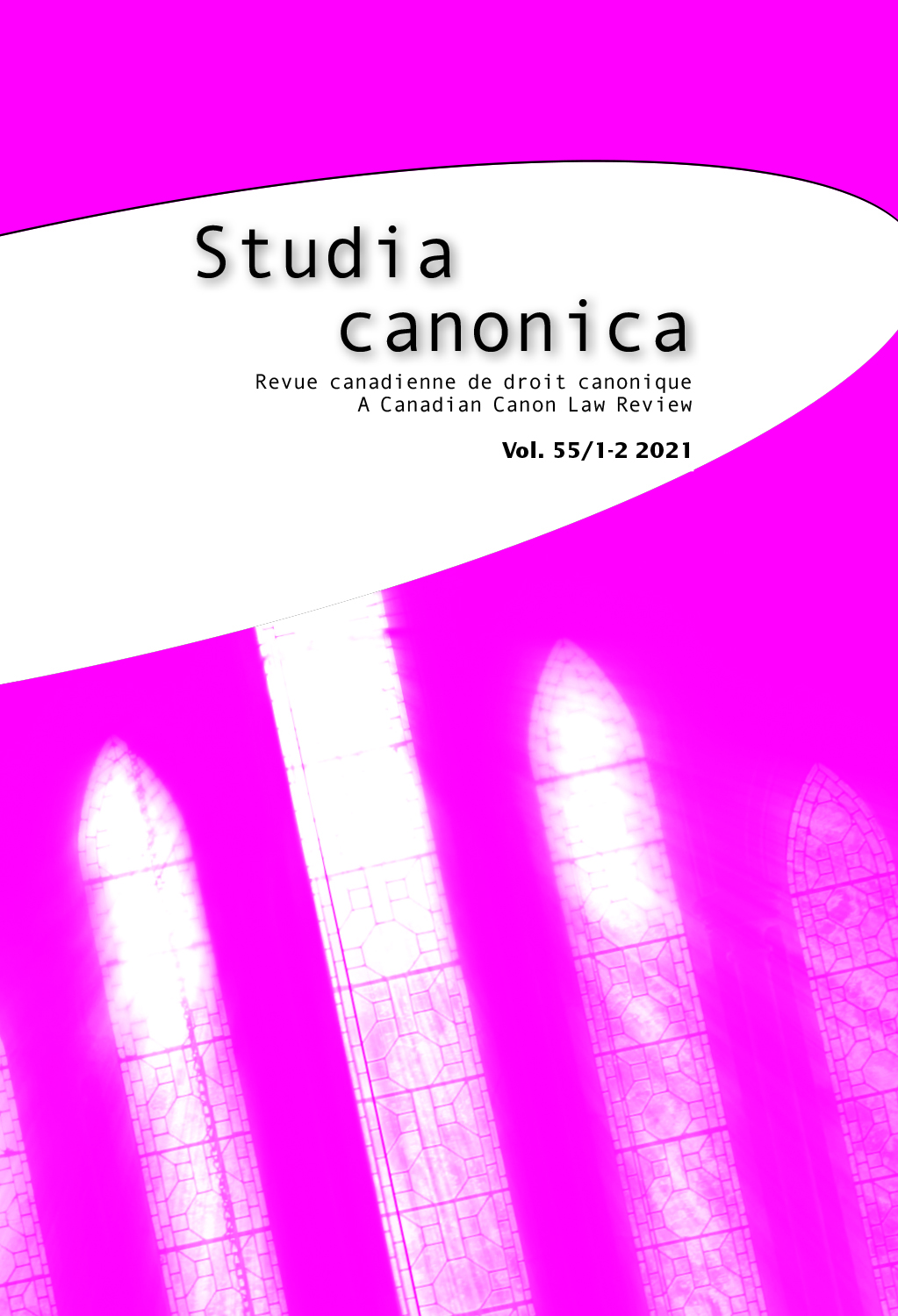 previous article in this issue previous article in this issue | next article in this issue  |

Preview first page |
Document Details : Title: Le pouvoir de gouvernement et le diacre Author(s): DION, Michel Journal: Studia Canonica Volume: 48 Issue: 1 Date: 2014 Pages: 101-127 DOI: 10.2143/STC.48.1.3047113 Abstract : Cet article présente une analyse canonique des divers pouvoirs de gouvernement qui peuvent être exercés par un diacre, et ce plus particulièrement depuis la modification des canons 1008 et 1009 dans Omnium in mentem. Il cherche à cerner les fondements ontologiques de la capacité du diacre à exercer le pouvoir de gouvernement. La première partie présente brièvement la pensée fondamentale du deuxième Concile du Vatican au sujet des sources théologiques du pouvoir dans l’Église, tel que le pouvoir sacré (sacra potestas) conféré par le sacrement de l’Ordre, ainsi que les traits principaux du concept juridique de pouvoir de gouvernement au sein du système canonique actuel. L’auteur se propose ainsi d’énoncer une définition canonique précise du pouvoir de gouvernement qui, à son tour, pourrait être utilisée dans le cadre d’une analyse de la participation du diacre à l’exercice du pouvoir de gouvernement. La deuxième partie cherche à déterminer si l’ordination diaconale confère une nouvelle capacité ontologique qui habilite le diacre à assumer des positions de pouvoir juridique plus importantes et si cette capacité diffère de celle des autres ordres sacrés et de celle du laïc. L’auteur situe le diaconat au sein de la dynamique du sacrement de l’Ordre en examinant la nature, le rôle et les effets sacramentels et juridiques de l’ordination diaconale, ainsi qu’en se penchant sur la façon dont ceux-ci déterminent l’étendue et les particularités de la participation du diacre à l’exercice du pouvoir de gouvernement dans l’Église. This article presents a canonical analysis of the various powers of governance which can be exercised by a deacon, particularly since the modification of canons 1008 and 1009 in Omnium in mentem. It seeks to identify the ontological foundation of the deacon’s capacity to exercise the power of governance. The first part briefly presents the Second Vatican Council’s fundamental understanding of the theological sources of power within the Church, such as sacred power (sacra potestas) conferred by the holy orders, as well as the principal traits of juridical concept to the power of governance within the current canonical system in order to propose a precise canonical definition of the power of governance that, in turn, can be used to analyze the deacon’s participation in the exercise of the power of governance. The second part addresses whether or not diaconal ordination confers a new ontological capacity which enables the deacon to assume positions of greater juridic power, and whether or not this capacity differs from that of the other orders of sacred ministry and from the layperson. The author situates the diaconate within the dynamic of the sacrament of holy orders by examining the nature, the role, and the sacramental and juridical effects of diaconal ordination, and by investigating how these determine the extent and particularities of the deacon’s participation in the exercise of the power of governance within the Church. |
|


